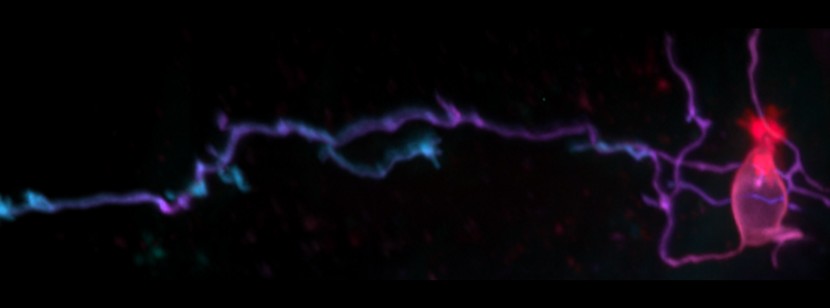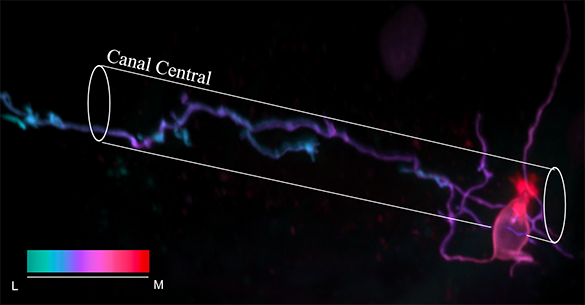Dr. Claire Wyart leads a research team working on nerve networks of the spinal cord at the Brain and Spine Institute – Institut du Cerveau – ICM, Institut du Cerveau et de la moelle épinière – in Paris. In team with Dr Patrick Delmas from Marseille and Dr Katharine Lewis from New York, Dr. Wyart is the proud recipient and principal investigator of one of the 24 HFSP program grants 2014, awarded by The International Human Frontier Science Program– HFSP – out of 844 submitted and rigorously screened during one year. Her collaborators from Marseille and New York are coming to the Institut du Cerveau – ICM on 16 and 17 December 2014, for their intercontinental rewarded joint project kick-off meeting.
After a rigorous year-long selection amongst 844 applicants, the International HFSPO is awarding about $35 million – approximately 28 million euros – to the 34 winning teams of the 2014 competition for the HFSP Research Grants. Among the winners were rewarded 10 Young Investigator teams together with 24 Program Grants recipients including the intercontinental team formed by Dr. Claire Wyart at the Institut du Cerveau – ICM, Dr Patrick Delmas, Research Director at the CNRS in The Center of Neurobiology and Neurophysiology of Marseille and Dr Katharine Lewis, associate professor of biology in The College of Arts and Sciences, Syracuse University, New York. Each team member receives on average $110,000 – $125,000 per year for 3 years.
HFSP collaborative research grants are given for a broad range of projects under the umbrella theme of “Complex mechanisms of living organisms.” Particular emphasis is placed on cutting-edge, risky and exploratory projects to enable researchers to discover new clues. For Dr Claire Wyar’s team, this grant represents the opportunity to develop their research on spinal cord neuronal networks underlying locomotion, in long term perspective to repair the spinal cord and re-establish normal locomotion in patients with handicaps.
More particularly, Dr Wart’s team will use the grant to study a special class of nerve cells that are located along the central canal of the spinal cord and that contact the cerebrospinal fluid (CSF). The program aims at establishing how genetic networks specify these fascinating cells and unravel the molecular mechanisms by which CSF-contacting neurons are physiologically activated and contribute to behavior. “We have evidenced sensory neurons at the interface between the cerebrospinal fluid and the motor circuits. These neurons are conserved in vertebrates. In the zebrafish model, we hope to gain a better understanding of how chemical and mechanical cues produced in the brain are communicated to neurons within the spinal cord” says Drs Wyart. This program will use exciting new interdisciplinary approaches, with the competencies of the laboratories of Dr. Kate Lewis on the development and of Dr. Patrick Delmas on ion channels, to investigate these crucial questions and fundamental gaps in our knowledge.
HSFP Awards 2014:
Program grant: “Sensory-motor integration in cerebrospinal fluid contacting neurons” – Claire WYART Principal Investigator, Dept. of Optogenetic Dissection of Spinal Circuits, Brain and Spine Institute (Institut du Cerveau – ICM), UPMC, Paris, FRANCE – Patrick DELMAS, CRN2M, Center for Neurobiology and Neurophysiology, UMR 7286, Aix Marseille University, FRANCE – Katharine LEWIS Dept. of Biology, Syracuse University (USA and UK).
Legend : Mosaic labeling showing the morphology of a cerebrospinal fluid contacting neuron in the spinal cord of the zebrafish larva. The cell exhibits microvilli (red – pink) bathing in the lumen of the central canal and one axon (purple – blue) ascending in the ventral spinal cord. © Caleb Stokes and Claire Wyart – Institut du Cerveau – ICM
Illustration © Caleb Stokes and Claire Wyart – Institut du Cerveau – ICM








